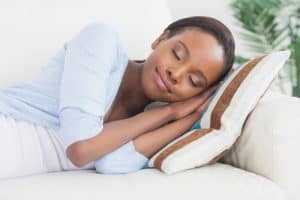Buying a mattress for your child is an even bigger challenge than buying one for yourself. First of all, there’s the fact that they are growing and their bodies are constantly changing. Secondly, you want only the best for them, which adds some pressure to make just the right choice.
Let’s have a look at what you need to bear in mind when you are hunting for a kid mattress.
Kids grow fast.
When you buy a good quality mattress, it will last around 10 years, if not more. Your rug rat may be only 3 or 4 now, but imagine how tall he or she will be as a teenager.
A number of parents decide to get a twin bed for their little one, but that may not turn out so comfortable if you like cuddling with your child or reading bedtime stories to him or her. A full-size mattress is convenient because it gives your child space, which is important if they are restless sleepers. How many times do we find them in the morning with their heads where the feet should be?
Kids sleep more.
Because children are developing so quickly, they need regular rest and generally, around 9 or 10 hours of sleep. That means they spend more time in contact with the mattress, which makes it even more important to get one which is good quality.
Why? Traditional mattresses are regularly made of synthetic materials, like polyurethane, vinyl and PVC. These materials are known for off-gassing. The toxic gasses are most notable in the first few days or weeks after the purchase, but it typically continues for years without being detected, because we grow used to it.
Polyurethane is known to emit volatile organic compounds (VOCs). Formaldehyde can also be found because it’s used in adhesives. Even cotton materials can be full of pesticides, and the vast majority of mattresses have flame-retardant chemicals. All these substances and many more like benzene and naphthalene can cause headaches, respiratory problems, allergies and skin irritations.
Natural or organic materials and absence of petrochemicals are your best choice when choosing children mattresses.
Kids are building their posture.
Traditional wisdom says firm mattresses are better for the spine, right? Well, if you are an adult back sleeper this is probably true. Infants and babies should sleep on a firm mattresses because of the risk of SIDS, but young children are just fine on a plush or plush/ firm mattress. The thing is that their light weight prevents them from making significant impressions on the mattress. If they like sleeping on their side, a mattress that is too firm will not provide proper support for the natural curvature of the spine.
Natural latex is again the supreme choice, but pocketed coil is also excellent for support. High-quality innerspring mattress are also fine. Memory foam is problematic because of off-gassing.
Kids benefit from mattress protectors.
There are two reasons why you should give serious thought to children’s mattress protection. First, if your little one wets the bed, the cover will have the mattress live another day, as it were. A waterproof mattress protector will prevent the moisture from reaching the mattress and feeding dust mites or mold. Both of these are allergens and especially dangerous for asthma sufferers, which is another reason why you’d like to have a protector on your child’s mattress.
Modern mattress protectors are not crinkly plastic anymore. Now they are made from brushed, tightly-woven cotton which allows the sleeper’s skin to breathe and it is noiseless.
Takeaways
- When you are deciding about the mattress size, bear in mind how quickly your child is growing and how long the mattress is expected to live.
- Natural, organic materials without pesticides, VOCs and PDBE flame-retardants are best because of off-gassing which can cause health problems.
- Plush mattresses are fine for young children because their weight is not likely to produce impressions.
- Natural latex mattresses are absolutely the best investment because they are antibacterial, hypoallergenic and the most durable. Pocketed coil is the second-best choice. Innerspring mattresses with high-quality foam are also fine, if they are certified to be free of toxic materials. Memory foam is problematic because of off-gassing issues.
- Waterproof brushed-cotton mattress protectors are very good against dust mites and mold.
Child mattresses in mattress stores in San Diego
As you are roaming mattress stores in San Diego, looking for a mattress for your child, make sure you visit Mattress Makers showroom in San Diego. We would be happy to answer your questions and address all your concerns. We are a family business with a decades-long experience and passion. Our specialty are custom mattresses, so we can meet all your requirements. Our products go from the factory straight to you – the fact we have no middle men means you can get the best children mattress for the most competitive price in the market!



